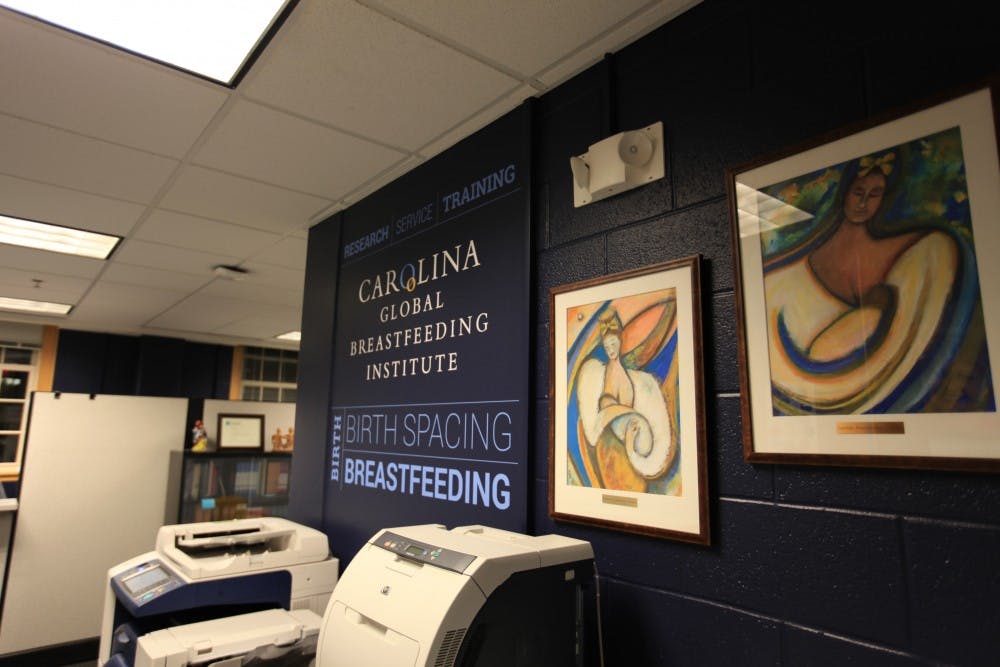The Carolina Global Breastfeeding Institute received a grant of $530,700 from Blue Cross and Blue Shield of North Carolina on Tuesday to help the institution promote safe breastfeeding and education services.
CGBI works to educate and draw support for breastfeeding as a natural and healthy way for women to nurse their children. As the first public health breastfeeding center of its kind, CGBI plans to use the grant to help 61 hospitals in North Carolina become Baby-Friendly.
Baby-Friendly USA is a global program that aims to implement the Ten Steps to Successful Breastfeeding and the International Code of Marketing of Breast-milk Substitutes, two specific frameworks that hospitals must abide by in order to obtain the Baby-Friendly designation.
“Baby-Friendly was created by the World Health Organization and UNICEF,” said Catherine Sullivan, director of CGBI. “The goal was to promote safe maternity care practices (in birthing facilities) that would enable breastfeeding if the mother were to choose to breastfeed. It also protects other mothers who choose to formula feed around safe handling of formula.”
Research shows breastfeeding has many benefits for both mothers and children.
“Babies that are not breastfed have a higher risk of different conditions: upper respiratory infections, diabetes, certain childhood cancers. They actually have a higher risk of dying from Sudden Infant Death Syndrome if they are not breastfed,” said Sullivan.
“For mothers, the benefits are protection against breast and ovarian cancers. It also helps with blood pressure and heart disease, so women who breastfeed have less risk of having a heart attack later in life.”
CGBI was created in response to certain barriers against breastfeeding, such as the changing society and lack of a paid family leave, Sullivan said.
“Not being able to break down those barriers, domestically and globally, was the driving force to have an institute that was dedicated to the implementation of programming that would help lift those barriers,” Sullivan said.




